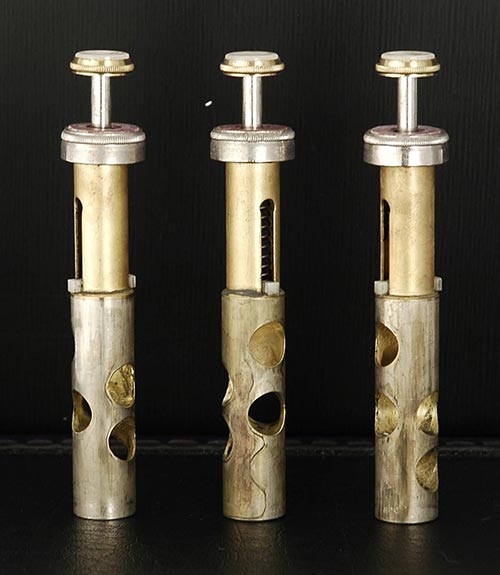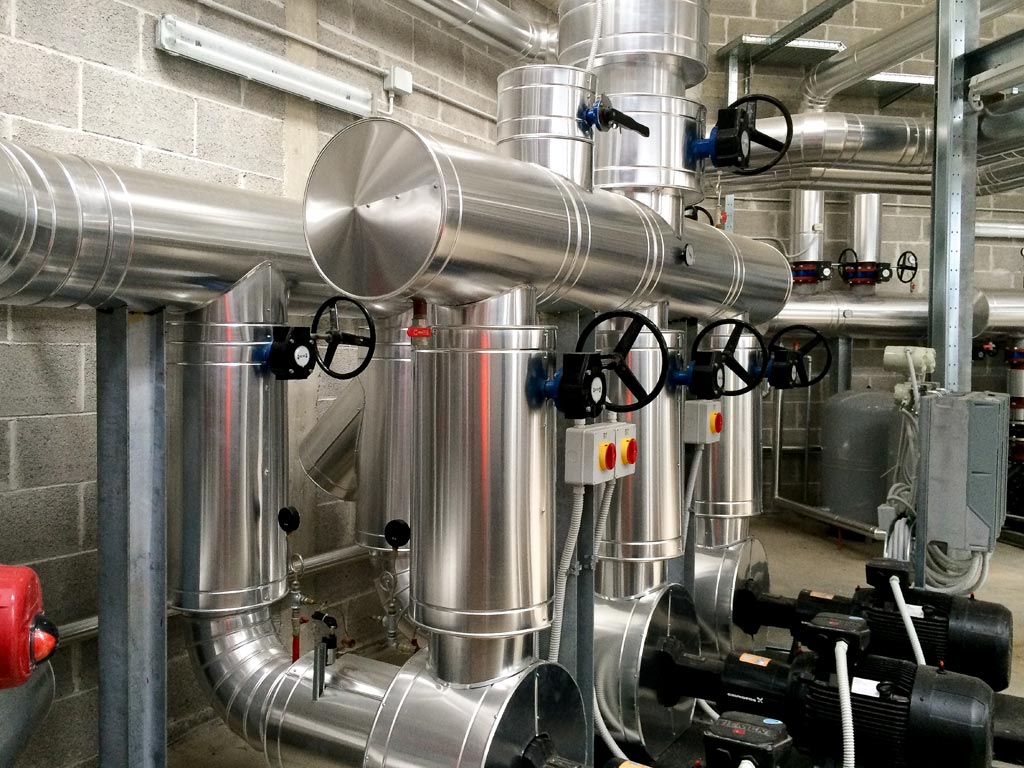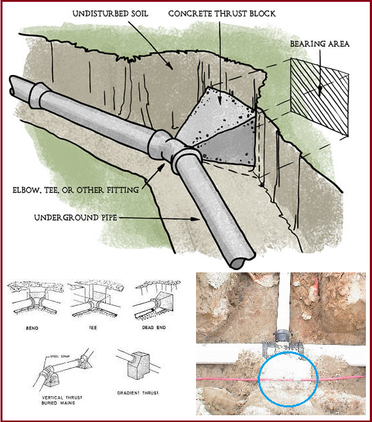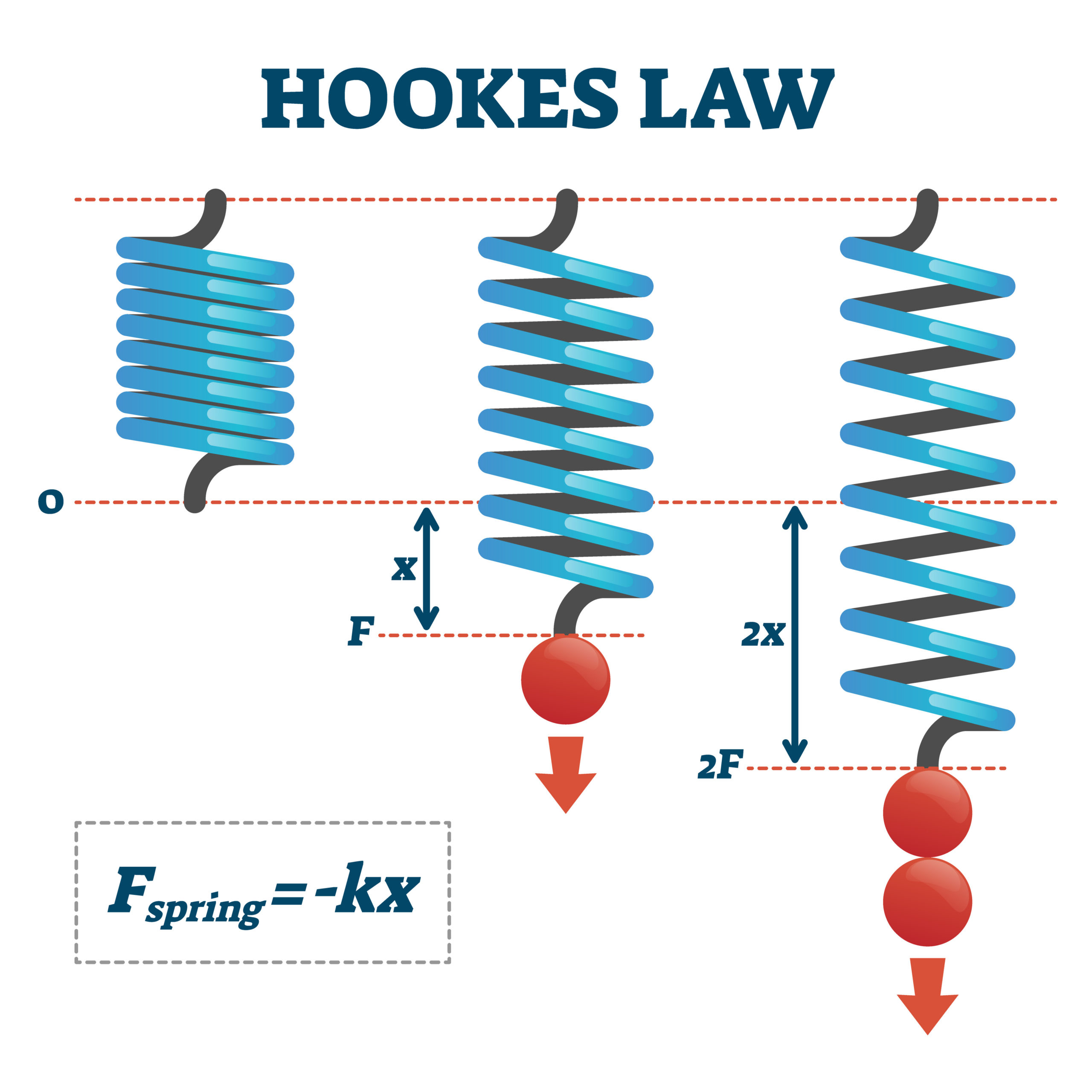Monel alloys were first introduced by the International Nickel Company (INCO) in the early 1900s and are named after the company’s president, Ambrose Monell. These alloys are known for their exceptional resistance to corrosion, especially in saltwater, making them a go-to choice for marine engineering projects such as shipbuilding, offshore drilling platforms, and pipelines. With high mechanical strength and toughness, Monel alloys are suitable for demanding applications, including pump and valve components, boilers, and heat exchangers.
Monel alloys are also appreciated for their ease of fabrication and good welding properties, making them a popular choice for various industrial uses. They are non-magnetic, making them suitable for situations where magnetic interference is a problem. Furthermore, These alloys are highly resistant to stress-corrosion cracking, making them an ideal option for high-pressure and high-temperature applications.
These alloys are a versatile family of metal alloys that are highly valued for their strength, durability, and corrosion resistance. Their wide range of applications, from marine engineering to chemical processing, demonstrates the alloys’ versatility and reliability in harsh and demanding environments
Chemical Composition of Monel

The exact chemical composition of Monel varies depending on the specific alloy, but typically these alloys contain:
- Nickel: 20-29%
- Copper: 67-70%
- Iron: 1-2%
- Manganese: 1-2%
- Carbon: 0.3% or less
- Silicon, sulfur, and other trace elements may also be present in small amounts.
It is important to note that the precise composition can vary depending on the specific alloy and the intended application.
Properties of Monel
Some of the key properties of Monel include:
- Corrosion resistance: The alloys are highly resistant to corrosion, particularly in saltwater environments.
- Strength: The alloys have high mechanical strength and toughness, making them suitable for demanding applications.
- Fabricability: The alloys are easy to fabricate and weld.
- Non-magnetic: The alloys are non-magnetic, making them suitable for use in applications where magnetic interference is a concern.
- Stress-corrosion resistance: The alloys have a high resistance to stress-corrosion cracking.
- High-temperature performance: Monel alloys are suitable for use in high-pressure and high-temperature environments.
- Versatility: The alloys have a wide range of applications, from marine engineering to chemical processing.
Grades of Monel and their uses

Some of the most commonly used grades of Monel and their specific uses include:
- Monel 400: This is the most widely used grade and is known for its excellent corrosion resistance, strength, and fabricability. It is commonly used in marine engineering applications, such as shipbuilding and offshore drilling platforms, as well as in chemical processing and petroleum refining.
- Monel K-500: This grade has improved strength and toughness compared to Monel 400. It is commonly used in high-stress applications, such as fasteners, pump and valve components, and steam turbine components.
- Monel R-405: This grade is a high-strength alloy that is commonly used in aerospace and defense applications, as well as in nuclear engineering.
- Monel R-350: This grade is a nickel-copper alloy that is known for its excellent corrosion resistance and is commonly used in harsh environments, such as chemical processing and marine engineering.
It is important to note that these are just a few of the many grades of Monel available, and the specific grade used will depend on the intended application and required properties.
Advantages of Monel

- Corrosion resistance: These alloys are highly resistant to corrosion, particularly in saltwater environments, making them a popular choice for marine engineering and chemical processing applications.
- Strength: These alloys have high mechanical strength and toughness, making them suitable for demanding applications, such as pump and valve components, boilers, and heat exchangers.
- Fabricability: These alloys are easy to fabricate and weld, making them a popular choice for industrial applications.
- Non-magnetic: These alloys are non-magnetic, making them suitable for use in applications where magnetic interference is a concern.
- Stress-corrosion resistance: These alloys have a high resistance to stress-corrosion cracking, making them a preferred choice for use in high-pressure and high-temperature environments.
- Versatility: These alloys have a wide range of applications, from marine engineering to chemical processing, making them a versatile material choice.
- Long-lasting: These alloys have a long service life, making them an economical choice for many applications.
- Good thermal and electrical conductivity: These alloys have good thermal and electrical conductivity, making them suitable for use in heat exchangers and electrical components.
Disadvantages of Monel
- Cost: Monel alloys are composed of expensive components such as nickel and copper, making them relatively expensive compared to other materials. This can make them a less economical choice for some applications, especially those with large component requirements.
- Machining Difficulty: These alloys have a high hardness and tensile strength, making them difficult to machine without the use of special cutting tools and techniques. This can increase the cost and time required for fabrication, particularly for complex components.
- Sensitivity to Stress-Cracking: These alloys can be sensitive to stress-cracking, particularly in high-stress, high-temperature environments. This can limit the use of Monel alloys in applications where high levels of stress are present.
- Limited Supply: Monel alloys are not as widely produced as other materials, and can be difficult to source in large quantities. This can limit the use of These alloys in large-scale projects, and can result in increased lead times for delivery.
- Alloy Variability: Different grades of These alloys can have significantly different properties, making it important to choose the correct grade for the intended application. It is important to carefully evaluate the specific requirements and operating conditions to ensure the best material choice.
- Complex Processing: These alloys require complex processing techniques, such as forging, rolling, and annealing, making them more difficult to fabricate than some other materials. This can increase the cost and time required for fabrication, particularly for complex components.
- Low-Temperature Embrittlement: These alloys can become brittle at low temperatures, reducing their toughness and making them susceptible to cracking. This can limit the use of these alloys in applications where low temperatures are present.
While these alloys have many desirable properties, such as high resistance to corrosion and good strength, there are also significant disadvantages that must be carefully considered when choosing the alloys for application. It is important to carefully evaluate the specific requirements and operating conditions to ensure the best material choice.
Uses of Monel in various Industry

- Marine Engineering: Monel alloys are commonly used in marine engineering applications due to their high resistance to corrosion in saltwater environments. This makes them ideal for use in shipbuilding, offshore drilling platforms, and pipelines. These alloys are also commonly used for the construction of marine hardware, such as propellers, pumps, and valves.
- Chemical Processing: These alloys are highly resistant to a wide range of chemicals, making them ideal for use in chemical processing applications. They are commonly used in the manufacture of pumps, valves, and heat exchangers, as well as for the construction of storage tanks, piping, and other chemical processing equipment.
- Oil and Gas: These alloys are commonly used in the oil and gas industry due to their high strength and resistance to corrosion in harsh environments. They are used in the production of wellhead equipment, such as blowout preventers, and in the manufacture of drilling and production equipment, such as pipelines, valves, and pumps.
- Power Generation: These alloys are used in power generation applications due to their high strength and resistance to corrosion. They are commonly used in the construction of boilers, heat exchangers, and other high-temperature components in power plants.
- Aerospace: These alloys are used in aerospace applications due to their high strength and resistance to corrosion. They are commonly used in the manufacture of landing gear components, engine components, and other critical aerospace components.
- Medical Equipment: These alloys are used in the manufacture of medical equipment due to their biocompatibility and resistance to corrosion. They are commonly used in the construction of implants, such as artificial joints and other orthopedic devices, as well as in the manufacture of surgical instruments and medical devices.
Market Value and Economics of Monel
The market value and economics of Monel alloys are influenced by several factors, including global demand, supply, production costs, and competition. Monel alloys are used in a wide range of industries, including marine engineering, chemical processing, oil and gas, power generation, aerospace, and medical equipment, which contributes to their overall market demand.
The price of Monel alloys can vary depending on the specific grade and form, as well as the supplier and location. Monel alloys are typically more expensive than other nickel-based alloys due to their unique composition and properties, but their high resistance to corrosion and good strength make them a popular choice for demanding applications.
The production of Monel alloys involves the refining and processing of nickel and copper, which can be energy-intensive and expensive. The production costs for Monel alloys are influenced by the cost of the raw materials and the energy required for processing. In addition, the production of Monel alloys is subject to environmental regulations and can have an impact on production costs.
The competition in the market for Monel alloys is influenced by the availability of alternative materials and the specific requirements of different applications. Monel alloys are commonly used as an alternative to stainless steel and other nickel-based alloys in applications where high resistance to corrosion is a concern. However, alternative materials, such as titanium, are available in some applications, and the choice of material will depend on the specific requirements of the application and the cost considerations.
Companies manufacturing Monel

Several companies around the world manufacture Monel alloys, including:
- Arcelor Mittal
- Sandvik
- Carpenter Technology Corporation
- Materion Corporation
- ATI Allvac
- Special Metals Corporation
- AMETEK, Inc.
- TASSCO Alloys
- KOVAR, Inc.
- High Performance Alloys, Inc.
These companies produce Monel alloys in various forms, such as bar, wire, sheet, plate, and tube, for use in a wide range of industries, including marine engineering, chemical processing, oil and gas, power generation, aerospace, and medical equipment. The manufacturing processes used by these companies may vary, and the quality and composition of the alloys produced can also vary, so it is important to carefully consider the specific requirements of an application when selecting a Monel alloy supplier.
Conclusion
In conclusion, Monel is a group of nickel-based alloys with a composition that typically includes copper, nickel, iron, manganese, and carbon. These alloys are well-known for their high resistance to corrosion, particularly in saltwater environments, as well as their good strength and toughness. Monel alloys are used in a wide range of industries, including marine engineering, chemical processing, oil and gas, power generation, aerospace, and medical equipment, due to their unique combination of properties.
The specific grades of Monel alloys vary in composition and properties, and the specific grade used will depend on the requirements of the application. Some of the advantages of Monel alloys include their good fabricability, ease of welding, high resistance to stress-corrosion cracking, and non-magnetic properties. However, Monel alloys can also have some disadvantages, such as their high cost compared to other nickel-based alloys and their susceptibility to chloride stress-corrosion cracking.
Several companies around the world manufacture Monel alloys in various forms, and the market value and economics of these alloys are influenced by factors such as global demand, supply, production costs, and competition. Overall, Monel is a versatile and high-performance material that is well-suited for use in demanding applications where high resistance to corrosion and good strength are a concern.





